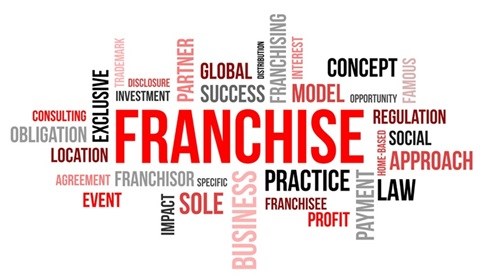
Subscribe & Follow
#AfricaMonth
In the news
Seven significant shifts franchises face in today's operating environment

Shift 1: From burgeoning economy to long-term recession
Times are tough and we're seeing this clearly in the changing needs of consumers who have been affected by the recession. No one is immune to the ever-present challenges of inflation, higher prices and the increased cost of living, so consumers are shopping smarter and making more informed choices. They are savvy purchasers and are researching options and doing their homework before putting their money on the table.
Shift 2: From brand loyalty to a proliferation of brand choices
Consumers now have more information, more power and are more verbal thanks to social media platforms, and they are not shy to voice their opinions, positive or negative. Their influence is unprecedented, and it is growing exponentially. Add to this the numbers of international brands which have entered the market - Burger King, Zara, Dune, Top Shop, Karen Millen - and consumers have more choice than ever before.
As such, brands need to know their customers and predict their needs. Why? Because aside from cash flow, the second most common reasons for business failure is because brands didn't listen to their customers, being truly in touch and having active dialogue with them.
Shift 3: From customer service to customer experience
The biggest shift that we've seen in retail is the swing to experience - in many cases it's what matters most to the consumer. People are looking for purpose in economically stressed times and will frequent brands which add value to their lifestyle.
It's no longer enough to simply offer good service only when the purchase is been finalised - the customer experience has to include every touch point - from the moment a customer has the first connection with your brand, be it online, viewing an advertisement, walking past your store, picking up your product, hearing the music in store, the aroma, the chatter of staff, right to the end when they receive an account or statement. The entire shopping journey must be a service experience that adds value.
Shift 4: From specialists to the multi-skilled few
A key trend that we are seeing in Europe is having staff who are cross-skilled, easily moving from one discipline to another, reducing the need from many specialists to multi-skilled and multi-tasking few.
It's common in Europe for the manager of a jewellery store to have various other tasks in addition to managing a team. These would include opening the store, sweeping the pavement in front of the store, unpacking the stock in the windows and opening for trade. In restaurants, waiters will help with prepping in the kitchen before a shift and will help with cleaning once trade for the night is over. In South Africa these functions would be done by different people.
Shift 5: From managed expense control to diminishing profits
The combination of high rentals and escalating electricity prices are just two factors influencing ever-increasing operating costs and franchisees are seeing the realisation of operating profits more difficult to achieve. This is forcing them to think creatively about how to optimally manage expenses and control costs at store level. The goal posts never stop moving. The targets are ever-changing. As such, the franchisor's role is to offer support via innovative methods designed to save money, improve efficiencies and streamline processes to drive top-line sales to counteract the negative impact on profitability.
Shift 6: Now you see me ... now you don't
Franchisees are not as present today in their businesses as they used to be, or should be. During my time at Wimpy, I was impressed to see that many Wimpy restaurants were run by family-owned franchisees for two or three generations, with owners raising their kids in the restaurants. Couples ran the restaurants successfully, spending most of their time with their staff and interacting with customers. Some would even have their baby's camp cot in their office and others even went to the extent of creating a dedicated baby room at the back of their restaurants.
They ran brilliant restaurants simply because they were present in their business. The impact of not physically being present is clear: loss of credibility with staff, and this is where we see the franchisee being taken advantage of, with gaps opening up for theft and profit loss. It's paramount for franchisees to take ownership of their business, in every sense of the word.
Shift 7: From waiting for business to planning for it to happen
The paradigm of waiting for customers to stream into a business is over. The proliferation of brand choices means that consumers are literally spoiled for choice, so franchisees need to have an action plan. It needs to be formulated and documented. Why? If a plan is written down, one inevitably achieves between 70-80% of the objectives. Don't write it down and the chances are you'll achieve between 40-50% of what you set out to do.















